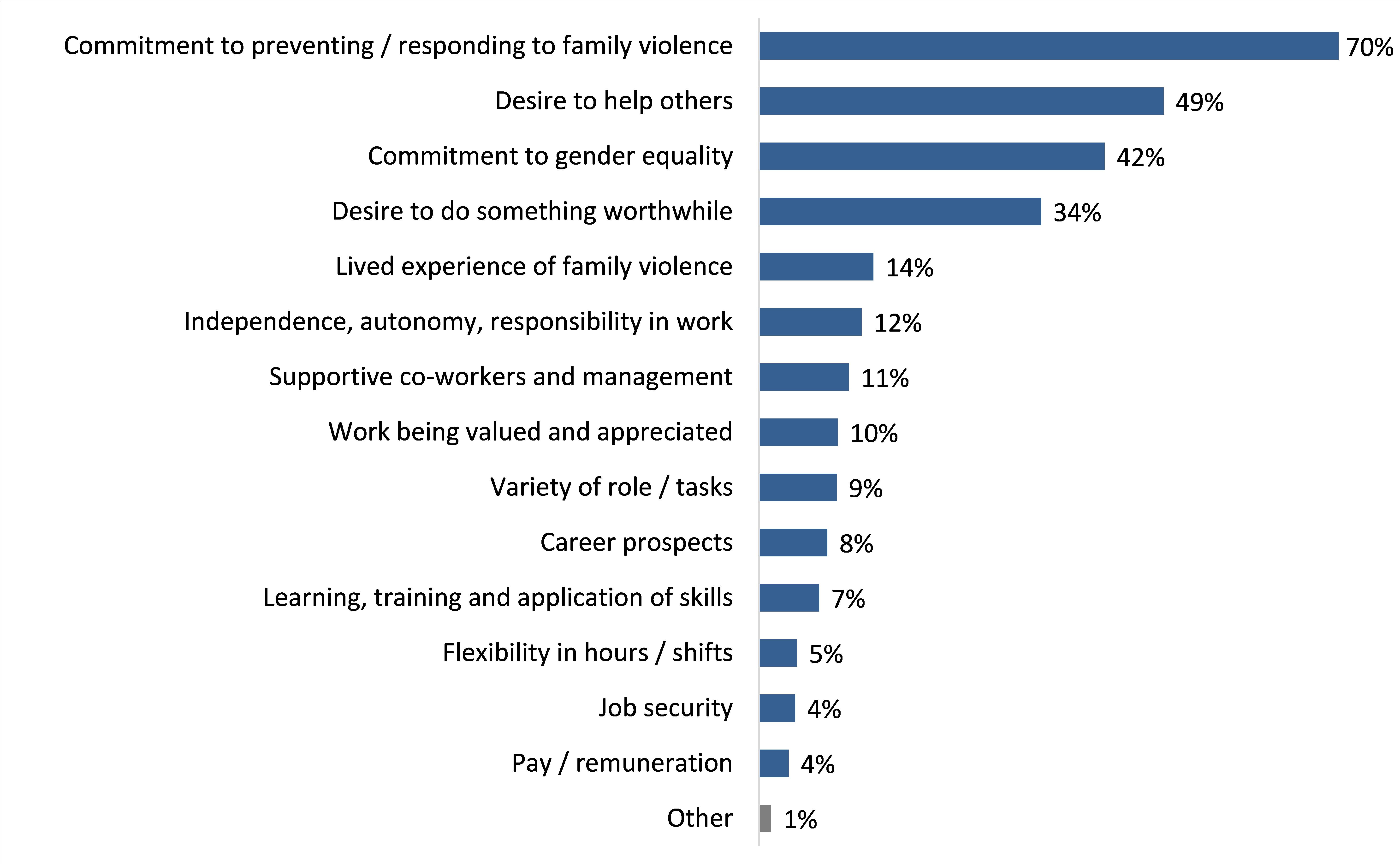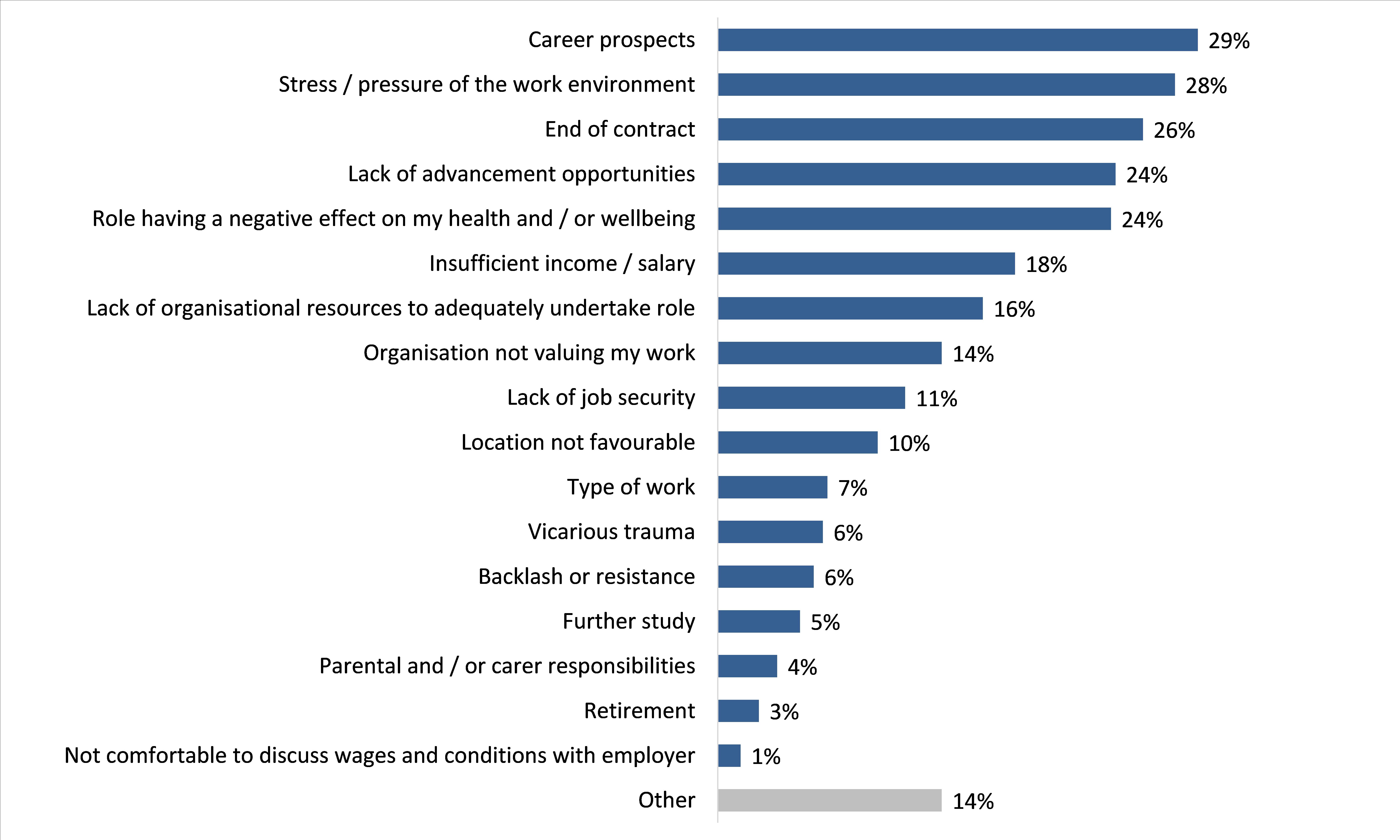Overall, the results illustrated that the specialist family violence response workforce were highly motivated by a commitment to preventing / responding to family violence, and a desire to help others.
When asked about their future intentions, half this workforce reported that they did not have plans to leave their current role. Of the 40% who did hold such intentions, their reasons were predominantly due to career prospects and lack of advancement opportunities, stress or other negative influences on their health and wellbeing, or an end of contract.
The main motivator for working in a specialist family violence response role was reported to be a commitment to preventing and responding to family violence – with 70% citing this reason. Almost half of this workforce also indicated that they were motivated by a desire to help others (49%).
This workforce was least motivated by pay/remuneration and job security (4% each).
When asked about their employment status prior to commencing their current role in the specialist family violence response workforce, a range of responses were provided. Overall, 41% indicated that they had held a role with another organisation or agency in the sector (within Victoria), 23% had been working in a related sector, 14% in an unrelated sector, and 13% had been studying.
Future intentions
Footnotes
- Q71. Thinking about your future, do you have plans to leave your current role? (n=1,409)
- Asked only of those who did not currently hold any roles in the primary prevention of family violence workforce.
Updated

